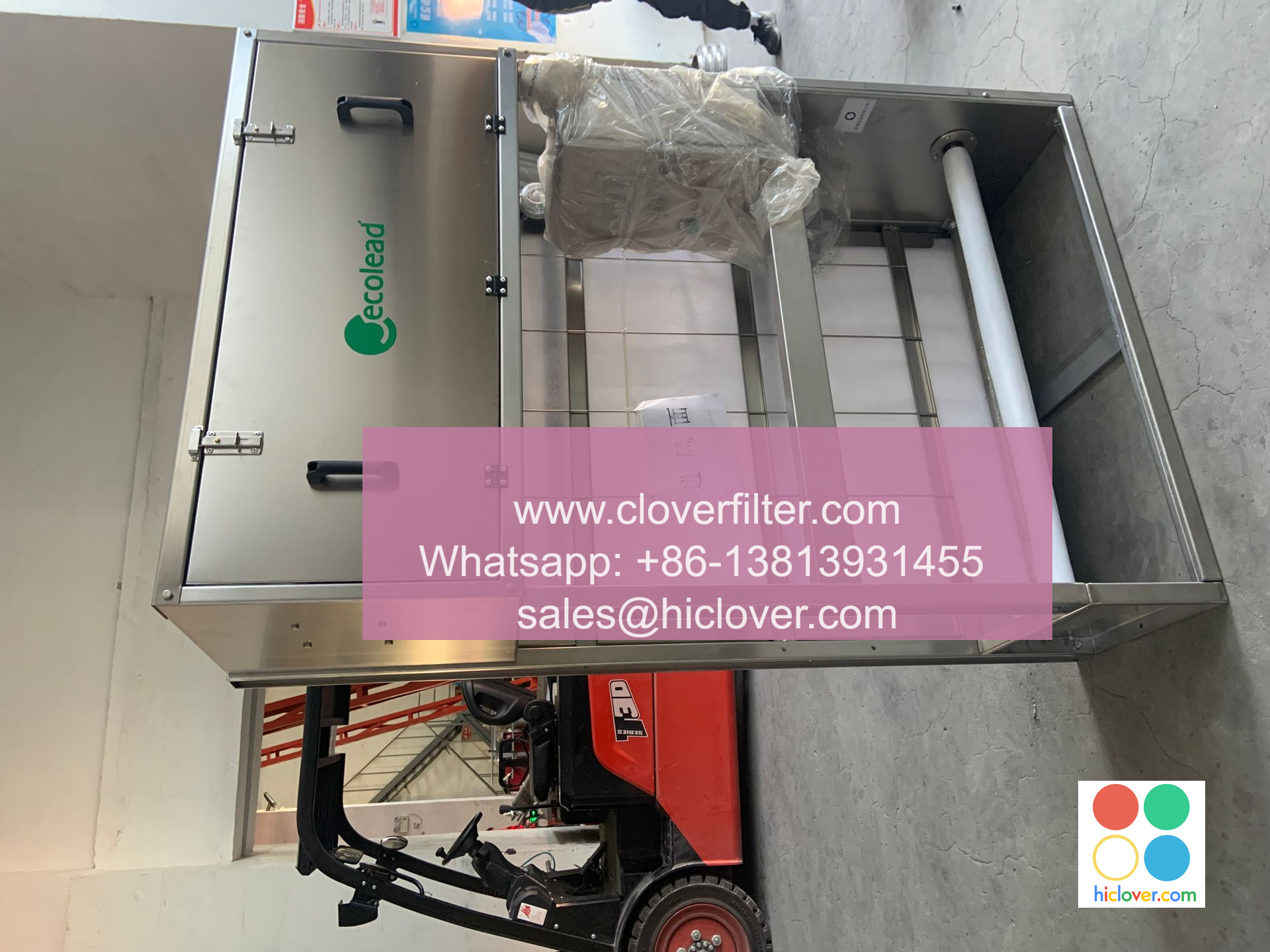The Impact of Automatic Roll Air Filters on Edmonton Hospital HVAC System Performance

The Edmonton hospital’s HVAC system is a critical component of the facility’s infrastructure, providing a comfortable and healthy environment for patients, staff, and visitors. The HVAC system’s performance is heavily influenced by the type of air filters used, and automatic roll air filters have been gaining popularity in recent years due to their numerous benefits. In this article, we will explore the impact of automatic roll air filters on the Edmonton hospital’s HVAC system performance.
Automatic roll air filters are designed to provide a high level of filtration efficiency, removing airborne contaminants such as dust, pollen, and bacteria from the air. These filters are made of a continuous roll of filter media that is automatically advanced as it becomes dirty, ensuring that the air flowing through the system is always clean and free of debris. The use of automatic roll air filters in the Edmonton hospital’s HVAC system has several benefits, including improved indoor air quality, reduced energy consumption, and extended equipment life.
One of the primary advantages of automatic roll air filters is their ability to improve indoor air quality. By removing airborne contaminants, these filters help to reduce the spread of airborne diseases and improve the overall health and well-being of patients and staff. This is particularly important in a hospital setting, where patients with compromised immune systems are more susceptible to illness. Additionally, improved indoor air quality can also improve cognitive function and productivity, which is essential for healthcare professionals who require high levels of concentration and attention to detail.
Another significant benefit of automatic roll air filters is their ability to reduce energy consumption. Traditional air filters can become clogged with debris, causing the HVAC system to work harder to push air through the filter. This increased workload can lead to higher energy bills and reduced equipment life. Automatic roll air filters, on the other hand, are designed to provide a consistent level of airflow, reducing the strain on the HVAC system and resulting in lower energy consumption. This not only saves the hospital money on energy bills but also reduces its carbon footprint and operational costs.
In addition to improving indoor air quality and reducing energy consumption, automatic roll air filters can also extend the life of the HVAC equipment. By removing airborne contaminants, these filters help to prevent damage to the system’s components, such as coils and fans. This can result in reduced maintenance and repair costs, as well as extended equipment life. Furthermore, automatic roll air filters are designed to be easy to maintain and replace, reducing the time and effort required to keep the HVAC system running smoothly.
The Edmonton hospital’s experience with automatic roll air filters has been positive, with significant improvements in indoor air quality and reductions in energy consumption. The hospital has reported a decrease in airborne contaminant levels, resulting in a healthier environment for patients and staff. Additionally, the hospital has seen a reduction in energy bills, which has helped to offset the cost of implementing the new filter system. The hospital’s maintenance staff has also reported reduced maintenance and repair costs, thanks to the extended equipment life and ease of maintenance provided by the automatic roll air filters.
In conclusion, the impact of automatic roll air filters on the Edmonton hospital’s HVAC system performance has been significant. The use of these filters has improved indoor air quality, reduced energy consumption, and extended equipment life. As the hospital continues to prioritize patient care and operational efficiency, the use of automatic roll air filters will remain an essential component of its HVAC system. With their numerous benefits and ease of maintenance, automatic roll air filters are an excellent choice for any facility looking to improve its indoor air quality and reduce its environmental impact.
Frequently Asked Questions
Q: What are automatic roll air filters?
A: Automatic roll air filters are a type of air filter designed to provide a high level of filtration efficiency, removing airborne contaminants from the air. They are made of a continuous roll of filter media that is automatically advanced as it becomes dirty.
Q: How do automatic roll air filters improve indoor air quality?
A: Automatic roll air filters improve indoor air quality by removing airborne contaminants such as dust, pollen, and bacteria from the air. This helps to reduce the spread of airborne diseases and improve the overall health and well-being of patients and staff.
Q: Can automatic roll air filters reduce energy consumption?
A: Yes, automatic roll air filters can reduce energy consumption by providing a consistent level of airflow, reducing the strain on the HVAC system. This can result in lower energy bills and reduced operational costs.
Q: Are automatic roll air filters easy to maintain?
A: Yes, automatic roll air filters are designed to be easy to maintain and replace. They are typically equipped with a simple and intuitive control system, making it easy to monitor and maintain the filter.
Q: Can automatic roll air filters be used in other facilities besides hospitals?
A: Yes, automatic roll air filters can be used in a variety of facilities, including office buildings, schools, and commercial properties. They are an excellent choice for any facility looking to improve its indoor air quality and reduce its environmental impact.

